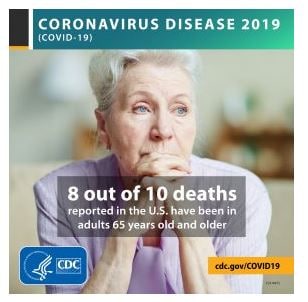Background
Changes to the makeup of the U.S. Supreme Court in 2018 raise the possibility that Roe v. Wade could be severely undermined — or even overturned — essentially leaving the legality of abortion to individual states. A reversal of Roe could establish a legal path for states’ pre-1973 abortion bans, as well as currently unenforced post-1973 bans, to take effect.
Many state lawmakers continue to consider and enact abortion bans that fly in the face of constitutional standards and Roe’s precedent in anticipation of an eventual lawsuit on such a ban coming before a Supreme Court hostile to abortion rights.
Some bans prohibit abortion under all or nearly all circumstances, a tactic widely viewed as an attempt to provoke a legal challenge to Roe. Several of this type of ban that were passed by states have been blocked by court orders and would require further court action to be enforced.
Other bans enacted after Roe are designed to be “triggered” and take effect automatically or by swift state action if Roe is overturned. Several states even have laws declaring the state’s intent to ban abortion to whatever extent is permitted by the U.S. Constitution, making their desire to halt abortion access in the state clear. A few states have amended their constitution to declare that it does not contain any protection for abortion rights or allow public funds to be used for abortion.
Meanwhile, policymakers in some states have approved laws to protect abortion rights without relying on the Roe decision. Most of these policies prohibit the state from interfering with the right to obtain an abortion before viability or when necessary to protect the life or health of the pregnant person.
Visit our state legislation tracker for policy activity on all sexual and reproductive health topics.
Highlights
- 23 states have laws that could be used to restrict the legal status of abortion.
- 9 states retain their unenforced, pre-Roe abortion bans.
- 13 states have post-Roe laws to ban all or nearly all abortions that would be triggered if Roe were overturned.
- 9 states have unconstitutional post-Roe restrictions that are currently blocked by courts but could be brought back into effect with a court order in Roe’s absence.
- 7 states have laws that express the intent to restrict the right to legal abortion to the maximum extent permitted by the U.S. Supreme Court in the absence of Roe.
- 4 states have passed a constitutional amendment explicitly declaring that their constitution does not secure or protect the right to abortion or allow use of public funds for abortion.
- 16 states and the District of Columbia have laws that protect the right to abortion.
- 4 states and the District of Columbia have codified the right to abortion throughout pregnancy without state interference.
- 12 states explicitly permit abortion prior to viability or when necessary to protect the life or health of the pregnant person.
For more information
TOPIC
United States
GEOGRAPHY
- Northern America: United States
- Alabama, Alaska, Arizona, Arkansas, California, Colorado, Connecticut, Delaware, District of Columbia, Florida, Georgia, Hawaii, Idaho, Illinois, Indiana, Iowa, Kansas, Kentucky, Louisiana, Maine, Maryland, Massachusetts, Michigan, Minnesota, Mississippi, Missouri, Montana, Nebraska, Nevada, New Hampshire, New Jersey, New Mexico, New York, North Carolina, North Dakota, Ohio, Oklahoma, Oregon, Pennsylvania, Rhode Island, South Carolina, South Dakota, Tennessee, Texas, Utah, Vermont, Virginia, Washington, West Virginia, Wisconsin, Wyoming










